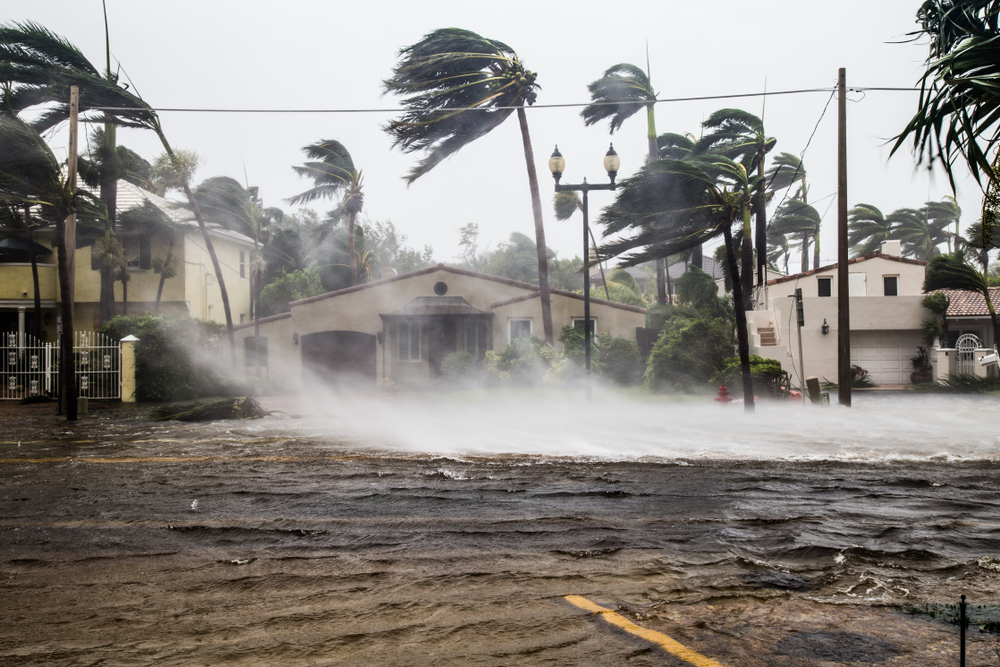Hurricane season officially began on June 1st and will run through November 30th. Early in the season hurricanes can be scarce with the majority of storms making landfall in September. That does not mean Florida residents should take the beginning of the season lightly. Floridian’s should be prepared for the worst and know what to do if things go wrong.
Predicting how many storms will actually hit is of course notoriously difficult. Generally, the National Oceanic and Atmospheric Administration (NOAA) tracks between four and eight hurricanes a year. Florida takes a direct hit about every four years, but that does not mean the state won’t take damage from lesser storms or even storm surge ever year.
Hurricane Dangers
Often times, the concern for most residents is the intensity of an oncoming hurricane. We assume that a more intense storm is more dangerous, that is a Category 4 storm poses more danger than a Category 2 storm, the category being based on wind speed. That assumption is true in many ways, but it does not tell the whole story. Often times the most damaging aspect of a hurricane is the storm surge, especially in a state like Florida.
Storm surge is the rise in water level above the tide caused by a storm pushing water towards the shore and is often the biggest threat to people’s lives and property during a storm. Storm surges can get as high as 15 feet in Miami and can reach tens of miles inland from the shore. Faster winds do contribute to more storm surge potential, but the size of the storm also plays a big factor.
In fact, a large and slow storm can be far more devastating than a fast-intense hurricane. One of the most devastating storms of all time was not even a Category 4 or a Category 5. Hurricane Katrina was a Category 3 storm when it made landfall in the United States, but it was very large, nearly 160 miles wide from the center and it produced a storm surge in Mississippi of 27.8 feet, five feet higher than the previous record. It is also estimated that 83 percent of all deaths during tropical storms are from inland flooding.
Miami in particular is susceptible to storm surge damage. A recent study approximates that 827,000 homes in the Miami metropolitan area, the majority of which are single family homes, are exposed to storm surge. Only New York has a more vulnerable area with 831,713 homes at risk, but New York also faces significantly less threat from hurricane storm surges than Florida does. The entire state of Florida has approximately 2.9 million homes with storm surge exposure.
Taking Storms Seriously
The director of the National Hurricane Center, Ken Graham, has expressed concern that citizens of the state are too dismissive of storms. Speaking to the Miami Herald, Graham said “We need to do a better job communicating the risks. There is no such thing as ‘just’ a Category 1.”
Many Floridians have lived through so many hurricanes, that often times they are reluctant to leave their homes and believe they can ride it out especially if they perceive the storm to be a low threat. This belief can be fatal. Category 1 hurricanes have ‘just’ caused $103 billion in damages over the last decade and taken 175 lives.
Florida residents need to take every storm seriously and be prepared for the storm’s arrival. Residents also need to be prepared for what happens after the storm. If your home is damaged, you may believe your insurance company will handle everything, but you may be in for a rude awakening. Insurance companies are loyal to shareholders and not to their clients. They have more of an interest in underpaying or denying claims than they do giving you what you need. Even if you have diligently paid your premiums, the insurance company views any payments to you as a loss.
After your home or business has been damaged by a storm, your best option is to reach out to an experienced property insurance attorney first. If you accept an offer from the insurance company that may foreclose you from disputing the claim in the future to get what you deserve. It is best to have an attorney by your side to negotiate your claim especially if your claim has been denied or underpaid.
The attorneys of Abrams Justice help Miami residents every year with storm damage. We know what you are going through, and we will fight the insurance companies without hesitation to make you whole. If you are in trouble call Abrams Justice at (305) 709-0880 and schedule a consultation to learn about your property insurance rights.


